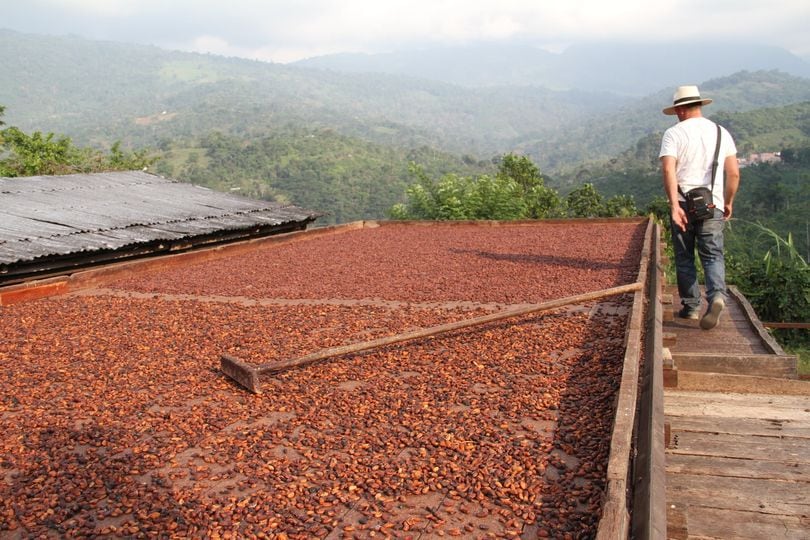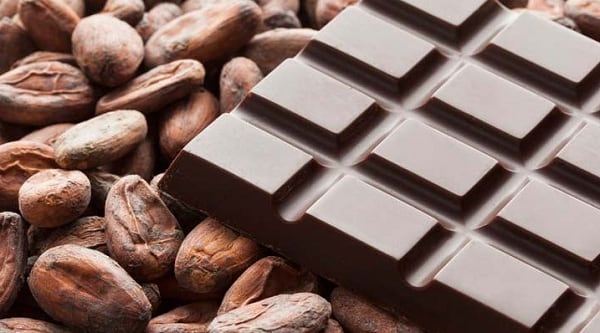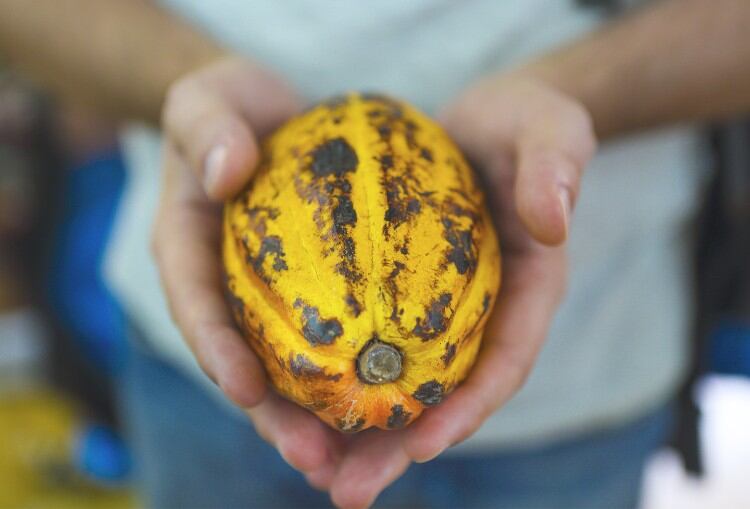If you have not heard of Cordillera (pronounced Cordijella) Chocolates until now, this is because the 100+-year-old sustainability-focussed brand was more famously known, across South America anyway, as Compañía Nacional de Chocolates, part of Grupo Nutresa, one of the largest food groups in the region.
Colombian Cocoa in numbers
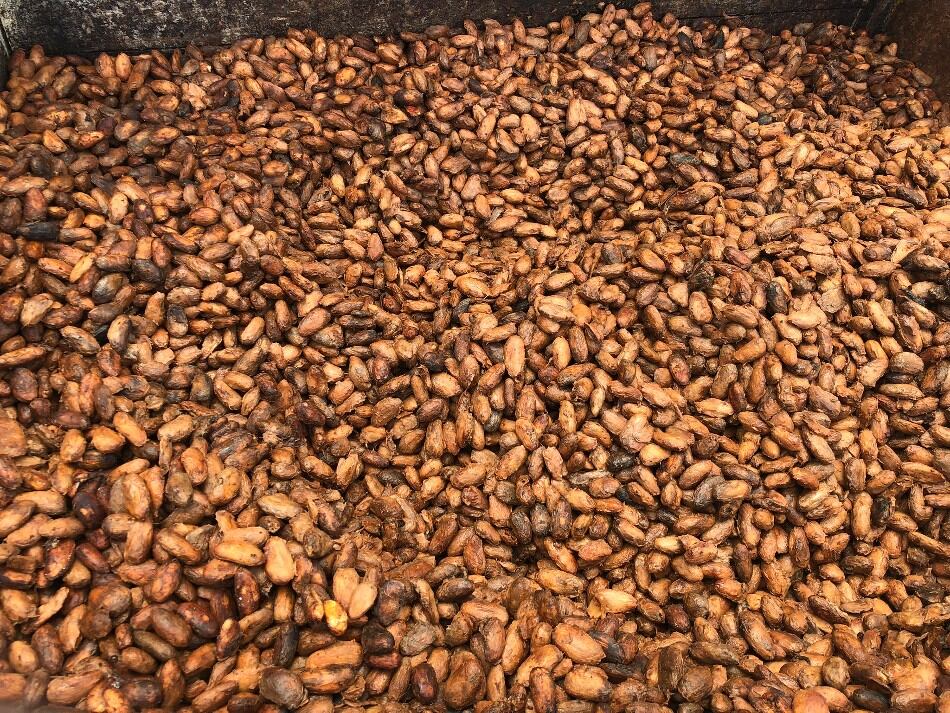
- Almost 70,000 tons exported in 2021
- Production ranking: 10th
- 194,428 hectares cocoa planted area.
- 2.8 million hectares of land suitable for cocoa growth
- Colombian cocoa exports have been classified by the International Cacao Organization as 95% fine or flavour cocoa, well above its South American competitors.
- From 2014 to 2021, Colombia increased cocoa production by 36.5%, resulting from increased productivity and planted area.
- Colombia exports cocoa to over 70 countries with the top five exporters in 2021 being Mexico, the United States, Ecuador, Belgium, and Peru.
- The price Colombian farmers are paid for cocoa has remained stable since 2020 at $2.12 per kg, according to FEDECACAO
- Domestic chocolate intake per capita of nearly 1 kg. A Colombian drinks an average 300 cups of chocolate de taza (hot drink) per year.
The rebranding – Cordillera translates as ‘mountain range’ - has been a slow roll-out that started pre-Covid, but is now ramping up since the easing of lockdown restrictions. As part of one of the largest suppliers in the country, Cordillera is also ideally placed to capitalise on the rise of Colombia’s cocoa production, which has increased over 60% in the past 10 years, reaching a record of almost 70,000 metric tonnes in 2021.
Approximately 90% of the production is allocated to the domestic market, mostly consumed in chocolate drinks, and Colombian cocoa is officially classified as ‘Fino de Aroma’ or fine flavour, by the ICCO.
Colombia doesn’t produce a lot of cocoa compared to some of its South American neighbours or countries in West Africa, but its product is recognised all over the world as premium single origin, and can therefore attract top dollar.
With many private-label brands, artisan chocolatiers, and even bigger manufactures discovering consumer preference for sustainable, transparent, single-origin chocolate, Cordillera is beginning to leverage its pedigree to appeal to a new global audience.
Cocoa for peace
Since the country’s peace deal in 2016 with the Revolutionary Armed Forces of Colombia (FARC), the nation has undergone a radical change and is now a safe place to visit and do business. The Cacao for Peace (CfP) initiative, a USAID/ USDA project, has also played a huge role in turning around the country’s fortunes and Cordillera’s parent company, Nutresa, is part of the programme by helping farmers transition to growing more positive crops by donating cocoa plants and developing farm inputs, and cultivation practices, thereby increasing cacao crop yields to increase farmer incomes.
In the past six or seven years, Cordillera (or Compañía Nacional de Chocolates, as it was previously known) has also opened up and become more outward focussed, reflecting the new vibrant mood and energy of the country.
Jorge León Gómez,is head of innovation and project management in charge of innovation, digital transformation, and strategic vigilance at Cordillera.
“Right now one of my challenges is trying to connect with the world. I’m trying to travel more and visit more events and markets, visiting clients and organising innovation days, and doing co-creations with them,” he tells ConfectioneryNews on a recent visit to the company’s plush headquarters in downtown Medellin.
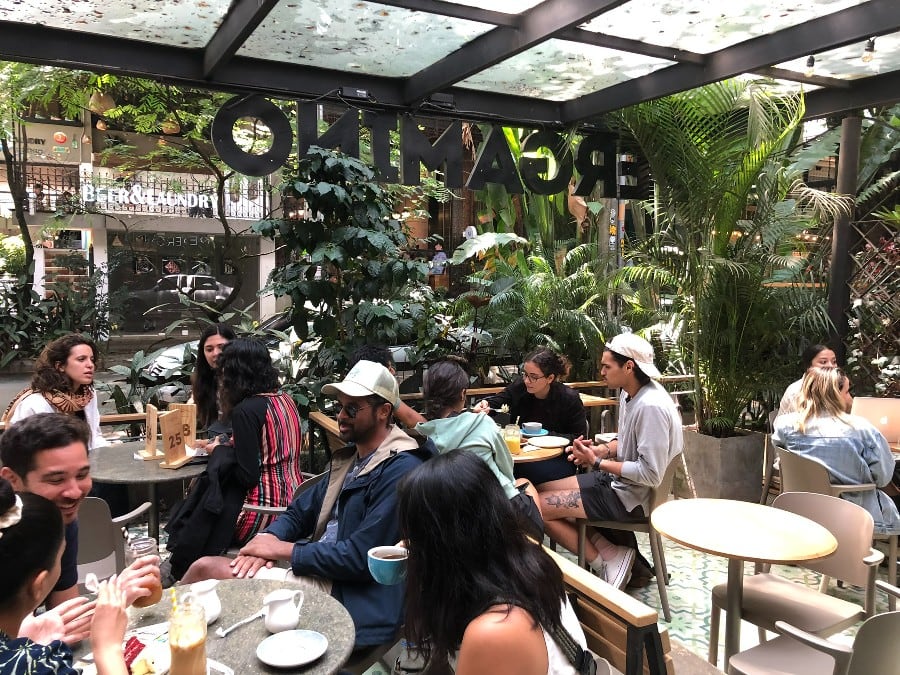
He says once a year the R&D and marketing teams send out an invitation to a meeting at the group’s main manufacturing facility just outside of Medellin, to run through the different innovations in the pipeline so the commercial and marketing teams are informed of product developments and they can also listen to feedback from other team members.
“It’s a real revolution,” says Gómez, “because the four teams are in Mexico, Costa Rica, Colombia, and Peru and although one of the advantages is we all speak Spanish, but sometimes we are speaking different languages, in terms of the politics and the company culture. So, it is beautiful, and it's also part of the challenge, as it is a two-way communication, and everyone can have a say.”
He says his main challenge is how can Cordillera be more aware of what's going on in the market? Which, he says, comes down to basic intelligence.
“Our main purpose as a team is to bond together and stop thinking in silos. So now we have a manifesto, to be aware of all the dynamics in the chocolate world market, how they evolve … what are the trends, what new novelties, who are the new players, not only our competitors but also because we're a B2B business, we're talking also about our potential clients, and we share this information with everyone in our community.
“We also talk about and listen to the farmers - those are actually super important players.”
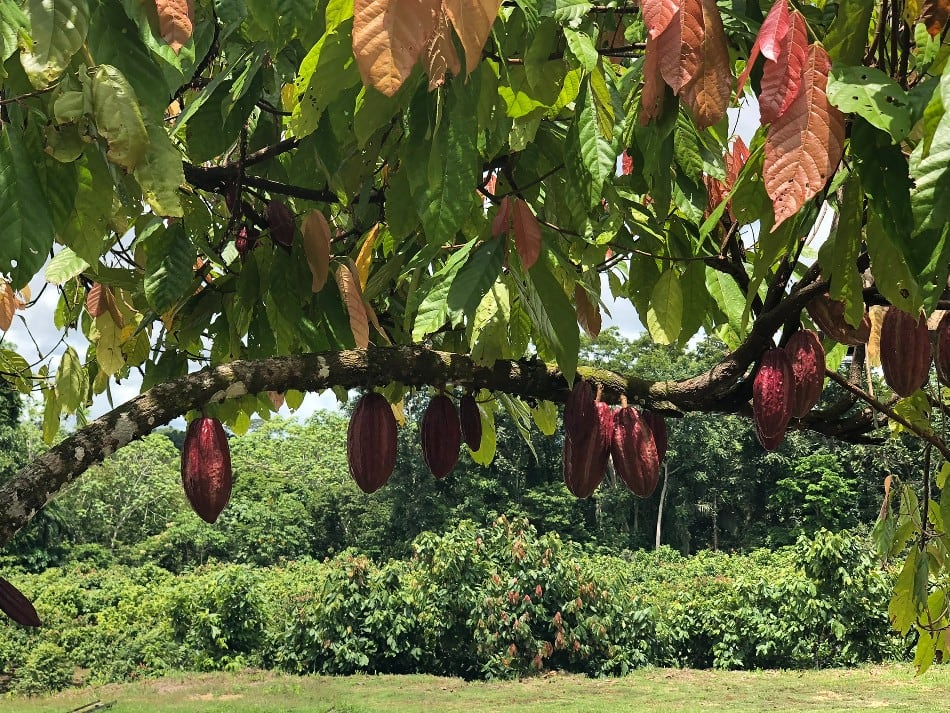
Global trends
Along with dealing with cultural challenges in a company with many years of heritage and adopting a different mindset, Gómez has to keep a keen eye on global trends, macroeconomic trends, wars and conflicts, climate change and how they affect food trends and specific trends in chocolate.
As a sign of how resilient the Cordillera has become, Daniela Zuluaga Valencia, head of global brand, Cordillera says during the Covid-19 pandemic with many outlets such as bakeries and cafes closed, the team kept in touch with their chefs online, via Google Meet, to maintain the flow of ideas and innovations.
“Demand for products stayed constant as people started cooking and baking at home and Cordillera saw lots of start-ups emerging, that needed good, quality chocolate for their cakes and cookies,” she says.
Valencia also reveals that during those difficult times, it helped clients that were struggling financially by creating flexible payment plans so businesses could keep on operating and have an income.
“That's the reason why we say we are ‘reliable partners’, not only in great times but in difficult times because this is our relationship that we have built up over many years,” she says.
Team Colombia
Natalie Quintero, Global Marketing Director, Cordillera Chocolates, said Cordillera was also part of ‘Team Colombia’, which, for the first time made it to the finals in 2021 of the world-famous Bocuse d’Or gastronomic contest,, held in Lyon, France. The chefs used cocoa in their indigenous creation and worked with experts from the National Chocolate Company and Cordillera Chocolates to achieve a dish that impressed judges resulting in Colombia winning the Bocuse d'Or Social Commitment Award.
Cordillera Chocolate Academy
Gómez, Valencia and Quintero are currently working together to develop the first Cordillera Chocolate Academy, designed in partnership with its culinary ambassador and well-known Medellin chef Natasha Moreno from the city’s amaranto restaurant.
“Academy Cordillera it's absolutely important because it is the way to connect the academy outside of the company, with our chefs, who are part of Nicolas Agudelo’s team,” says Gómez.
“The intention with the academy initiative is to try to develop specific innovations to share with our entire global team, and also with new chefs, clients, partners, and with the industry itself to offer a 360-degree vision for the future of Cordillera.”

